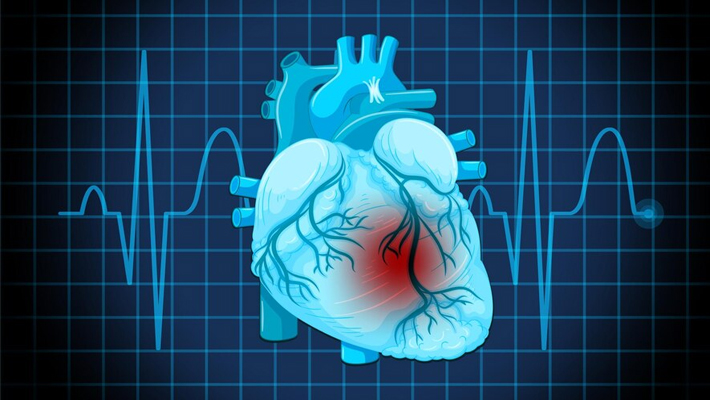
Food is essential to sustain the lives of living organisms and for humans, eating has become a normal sensory experience. That said, three meals a day is a modern invention made by humans to complement the life we live today. For many decades now, fasting has become a keen area of interest for researchers as well as healthcare professionals and even though fasting has been associated with religious rituals for millennia, it was only in the early 1900’s people started to realize the health benefits of fasting. Previously, fasting was only seen as a way to cleanse one’s soul. Even though, during the early days, people considered it as something that can adversely impact human health, over the years, science has proven that fasting is not unhealthy if it is done right. Researchers have also found that, if done properly, fasting is good for health.
The Science behind Fasting
Fasting can be simply defined as the willing moderation of food, drink, or both for a certain period of time. At present, if someone is not eating for a period of at least eight to twelve hours, it is considered as fasting. That means when we sleep at night, most people are doing an unintentional fasting and once they wake up and eat something, they break the fast. Fasting puts the body under a mild stress. This in turn makes human cells to adapt by improving their coping ability which over time makes them stronger. The process is similar to what happens when we stress our muscles during exercise.
Fasting also helps in cleansing our body of toxins and as the cells doesn’t get access to glucose, fasting forces cells to look at other means to generate energy. Due to this, body begins gluconeogenesis. This is a natural process where body produces its own sugar and the liver helps to convert non-carbohydrate materials into glucose energy. Through fasting, people are restricting their calorie intake and long-term calorie restriction can cause myriad of physiological changes. This includes growth, reproduction and even lifespan. During studies, researchers have also found that reducing calorie intake by 30 to 40 percent can help improve the lifespan of many animals. In humans, limiting the food we eat can even reduce the risk of old age diseases. Through multiple studies, researchers have identified three types of calorie restriction which can offer long term positive effects and they are:
a) Time-restricted Feeding – In this method, one will limit their calorie intake to a certain timeframe which aligns with their circadian rhythm. If one’s eating habits doesn’t sync with their circadian rhythm it can adversely impact their body’s natural repair system.
b) Intermittent Calorie Restriction – Here, the calories one consume every day is reduced which puts the body under mild stress. Through this fasting method, people will come to realize that they don’t need to consume regularly.
c) Periodic Fasting with Fasting Mimicking Diets – In this method, calorie intake for three to five days is limited. Many believe that this type of fasting is more efficient than two-day fasts as it helps the body to clean itself thoroughly.
Now let’s analyze some of the health benefits of fasting.
Positive Impact on Cognitive Performance
Fasting can help people to enhance their cognition. It also helps to stall age-related cognitive decline, slows neuro-degeneration, and improve the recovery process after stroke to name a few. As the body conserves energy during fasting, it can work much more efficiently. This in turn will help to lower the heart rate and blood pressure. Fasting has also shown to reduce brain damage and last month, there was a breakthrough study which highlights the positive impact fasting has on Alzheimer’s disease. The study was conducted at USC Leonard Davis School of Gerontology, USA. In this study, it was found that mice that did several cycles of fasting-mimicking diet show lower Alzheimer’s pathology. They found decreased levels of a) amyloid beta which plays a major role in plaque buildup in the brain, and b) hyperphosphorylated tau protein that creates tangles in the brain. The researchers also saw that the brain inflammation has reduced and these mice performed better in cognitive tests.
Helps in Fighting Obesity
An estimated 38.9 percent of people in the world are overweight or obese which makes them more vulnerable to various diseases. Fasting is an obvious method to lose weight and new research data show that fasting can not only help with fighting obesity but it will also help to deal with its related conditions. Ketosis is a process which happens later in the fast cycle when the body burns fat for energy. This is an effective way for people to lose weight and balance their blood sugar levels. Dr. Ayse Leyla Mindikoglu is an associate professor of medicine and surgery at Baylor College of Medicine, USA. She along with her colleagues used Ramadan to identify the positive impacts of fasting from dawn to the sunset. The team found that the 30 day fasting raised the levels of proteins that helps in improving insulin resistance as well and improved insulin sensitivity can result in better sugar control.
Beneficial for Cancer Patients
Fasting or fasting-mimicking diets are effective tools against the prevention of cancer. As these can change metabolite levels and growth factors, the body will be able to create environments which can lessen certain capabilities of cancer cells. This, in turn will increase the efficiency of cancer therapies. Also, fasting-mimicking diets are shown to increase resistance towards chemo therapy. It can even help normal tissue to regenerate. Recently, the interest for certain calorie limited diets is increasing as it is playing a crucial role in the prevention of certain cancers. The interest for intermittent fasting is also on the rise as experimental animal models are showing encouraging results. The International Food Information Council has also found that more cancer patients are seeking medical advice regarding intermittent fasting and the benefits it can offer for prevention and treatment of the disease.
Helps Against Mental Health Issues
Fasting can increase the availability of serotonin to the brain. As they are a feel-good neurotransmitter, fasting can have an antidepressant effect as well. It has also shown to relieve tension and anger while at the same time amplifies the feeling of euphoria. Also, during fasting, body has less toxic materials in it which makes it easier for people to think. In the fasting period, the energy that was previously used for digestion is available for the brain which helps it to function better as well. Even though one might not see an immediate effect, after the body clears the toxins and provide cleaner bloodstream to the brain, you will have clearer thoughts and improved memory. A previous study was conducted on the topic. It found that when people with depression reduced their calorie intake by 25 percent, they had fewer symptoms of the illness over six months.
With lifestyle diseases on the rise and mental health issues becoming a common occurrence, it is important to look at measures to prevent these from happening. Making healthier lifestyle changes is a great starting place and fasting is rapidly increasing in popularity in many parts of the world. With more studies coming out highlighting its physical and mental benefits and people becoming more health conscious, the appeal for fasting will continue to rise in the coming years.







